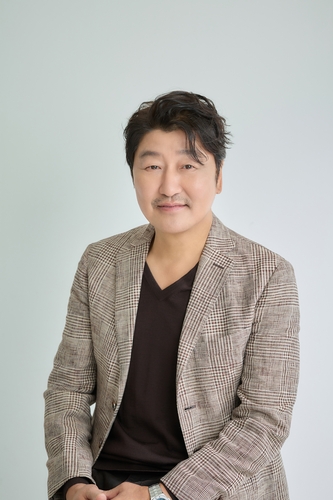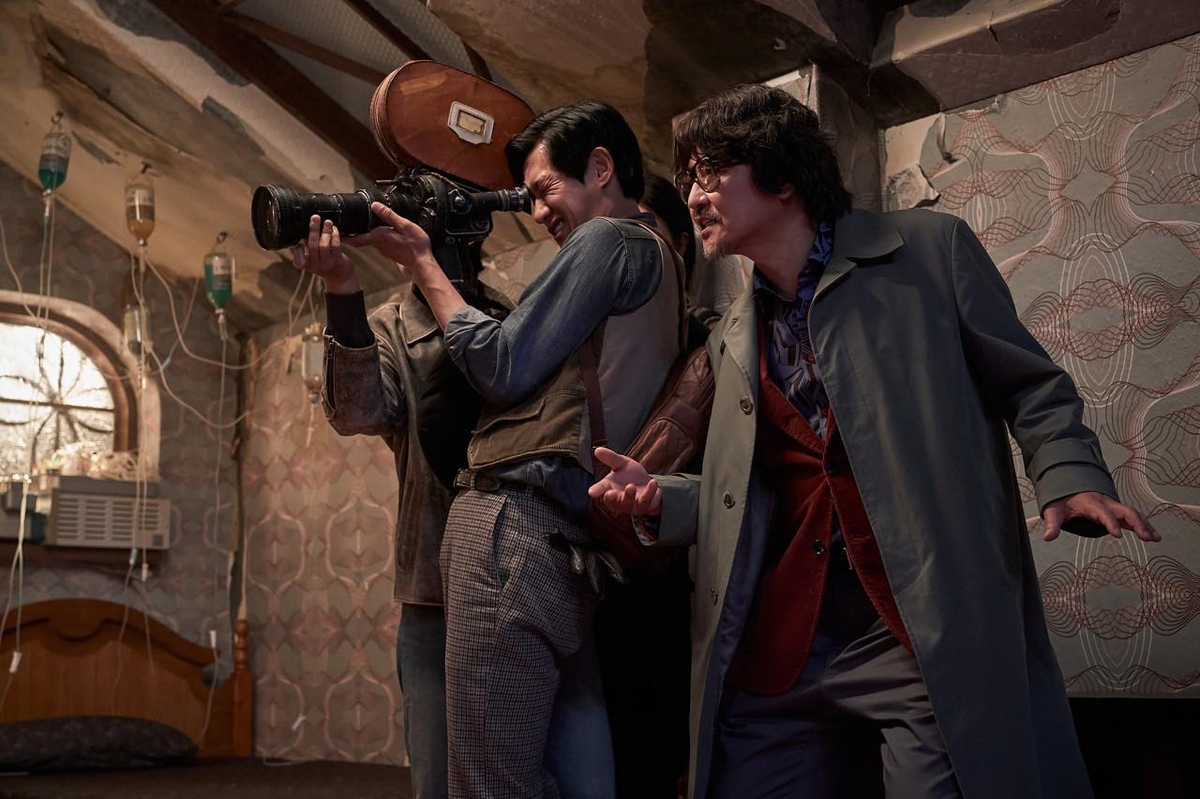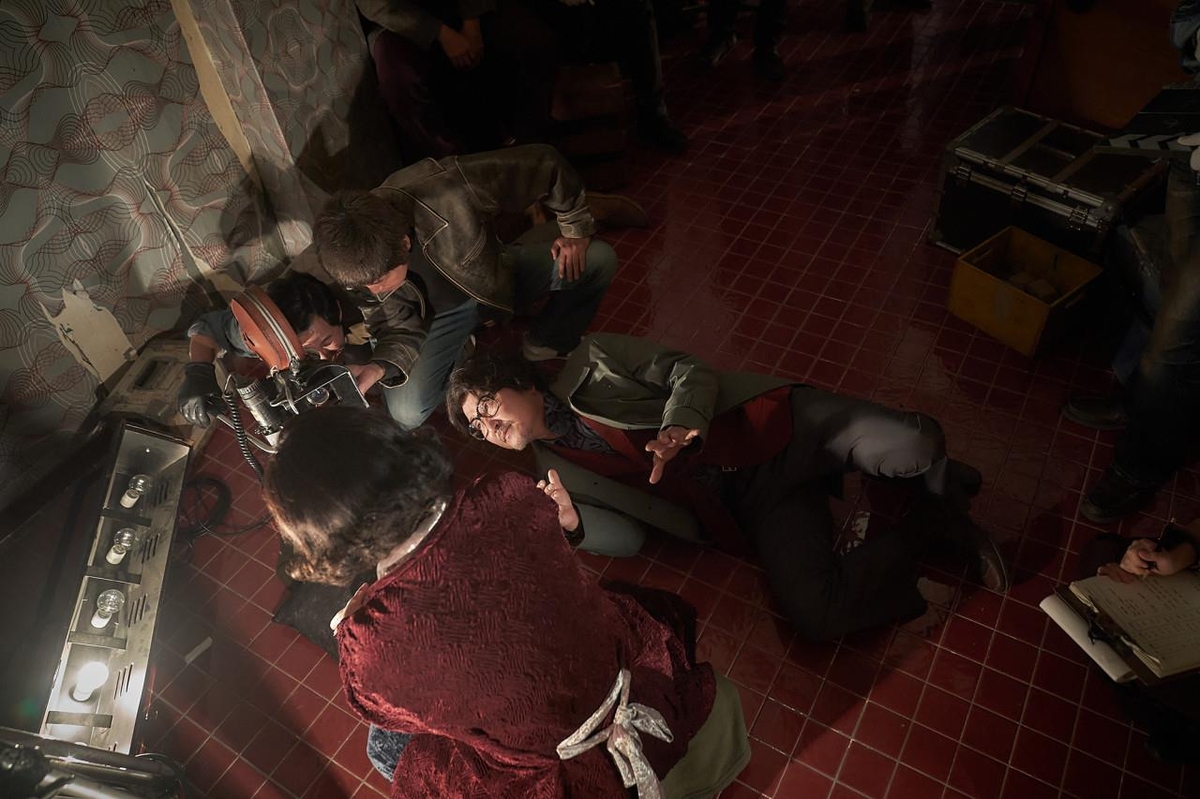- California Assembly OKs highest minimum wage in nation
- S. Korea unveils first graphic cigarette warnings
- US joins with South Korea, Japan in bid to deter North Korea
- LPGA golfer Chun In-gee finally back in action
- S. Korea won’t be top seed in final World Cup qualification round
- US men’s soccer misses 2nd straight Olympics
- US back on track in qualifying with 4-0 win over Guatemala
- High-intensity workout injuries spawn cottage industry
- CDC expands range of Zika mosquitoes into parts of Northeast
- Who knew? ‘The Walking Dead’ is helping families connect
Actor Song Kang-ho embarks on cinematic journey in director’s seat in ‘Cobweb’
Veteran actor Song Kang-ho cements his status as an icon of the Korean movie industry with his role as a tortured filmmaker in the 1970s who struggles to create a masterpiece in the new movie “Cobweb.”
The black comedy by director Kim Jee-woon follows Kim Yeol, a filmmaker from the ’70s who reshoots the end of his latest film out of his desire to create something unique but faces chaos due to uncooperative actors and repressive censorship.
During a group media interview Monday, Song said his fifth collaboration with director Kim pays homage to the overall Korean film industry and masters of the era, telling the story in an unconventional structure of a movie within a movie.
“Working with Kim feels like going on a cinematic journey. I was excited about what kind of journey I’ll embark on this time with him. At the same time, I was a bit afraid of how he will torment me again,” Song said, with a big laugh.

Although the 56-year-old has played diverse roles in various genres, Song said he is still excited when he becomes part of a movie that takes a refreshing approach and resonates with the audience, and that is why he decided to star in “Cobweb.”
“I am curious about viewers’ feedback because this film could be perceived as unfamiliar and unconventional. It is different from other movies with similar patterns and plots. I want them to enjoy energy and sentiment that only movies can convey on the big screen,” he said.
Song introduced his character as a desperate filmmaker who struggles to fulfill his cinematic vision despite the challenging environment.
His proposal to reshoot the end of the film is at first snubbed by the production company and government officials, but he hastily gathers exhausted actors and crew to shoot the ending scene under a new script.
As the movie presents various plots and narratives in a chaotic manner, different characters conflict with each other and tension ratchets up.
“There is a sense of urgency. Kim Yeol has to complete the movie under a challenging environment, and even a slight failure could ruin his ambition and discourage many people involved,” he said.

And he might be the best actor to play the role that pays respect to Korean film masters who were undeterred by strict government censorship.
The upward trajectory of Song’s acting career spanning nearly 30 years epitomizes the history of Korean cinema.
His filmography includes director Hong Sang-soo’s first feature “The Day a Pig Fell into the Well” (1996), Korea’s first Hollywood-style blockbuster “Shiri” (1999), director Park Chan-wook’s first major commercial success “Joint Security Area” (2000) and director Bong Joon-ho’s Oscar-winning film “Parasite” (2019).
Last year, he became the first Korean actor to win Cannes’ Best Actor award for his role in Japanese filmmaker Hirokazu Kore-eda’s movie “Broker.”
Recalling more spontaneous filming scenes in the 1990s and 2000s, Song said directors and actors these days are more prepared as the shooting process follows an agreed set of methods and scripts from the preproduction stage.
“The industry itself has changed a lot as the current system begins shooting after thorough preparations. As a result, it is hard for directors to make demands for reshooting scenes over and over again as they did in the past,” he said. “Instead, there are other challenges. As actors have to prepare perfectly, they should show their best performance from the first take.”

As a representative figure in the Korean film scene, Song expressed his desire to contribute to the industry by starring in innovative and creative films rather than dwelling on past glories.
“I consider various aspects when choosing a movie, including the director’s vision and whether the story can resonate with the audience,” he said. “I want to avoid becoming complacent.”
This year, Song will serve as the host of the Busan International Film Festival (BIFF), slated for Oct. 4-13, to fill the void of the leadership posts amid an internal feud.
The celebrated actor said he will host the opening ceremony and welcome guests throughout the festival with the hope that Asia’s largest film festival will return to its former glory next year.
“If I can be of any help to the Busan International Film Festival, which has grown as a global film festival over 28 years, I’m more than willing to help,” he added.











